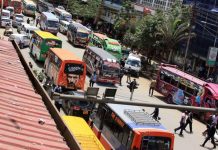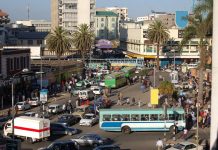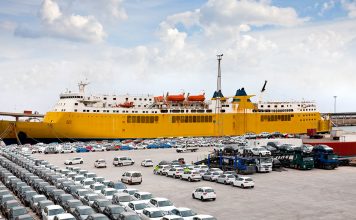• Starting this month, commuters will be able to use the commuter rail-BRT buses in the city once they alight from the train.
• This is part of the broader commuter-oriented transport system in partnership with Kenya Railways to ease movement in the city and its environs.
Commuting to the city centre is now easier and faster through the Nairobi Commuter Rail as operations resume in Embakasi, Pipeline and Donholm railway stations.
The three stations were part of the 10 new stations that the Kenya Railways Corporation upgraded.
The departure time at Embakasi Village is 7.05am and the train will arrive at Pipeline at 7.20am. Commuters will have two minutes to either board or alight before the train leaves for Donholm station.
Commuters will still have two minutes to board or alight before the train heads to Makadara station where it I’ll arrive at 7.37am.
It will take wait for three minutes before leaving for CBD to arrive at 7.54am.
In the evening schedule, the train will be leave the Nairobi Central Station at 6pm and drop off passengers in the three stations through the three stations and arrive at Embakasi Village at 6.49pm.
The Nairobi Metropolitan Service has also announced that starting this month, commuters will be able to use the commuter rail-BRT buses in the city once they alight from the train.
This is part of the broader commuter-oriented transport system in partnership with Kenya Railways to ease movement in the city and its environs .
According to the NMS, the clean and spacious buses will ply short routes as city residents wait for the completion of BRT infrastructure and amenities.
In February this year, Kenya Railways announced that the country will purchase 11 Diesel Multiple Units this year at Sh1.15 billion.
The new DMUs ware expected to ply five routes from Nairobi Central Station to Embakasi Village, Syokimau, Kitengela, Kikuyu and Thika.
Nine new stations are in the process of being built in Umoja, Kibera, Thika, Mbagathi Way, Kenyatta and Strathmore universities, Kitengela and Thogoto.
In July, Kenya Railways announced it intends to grow the number of monthly commuters from the current 300,000 passengers to more than two million in the next two years.
The city’s commuter rail service was introduced in May 1992 in response to a series of PSV strikes.
However, due to poor standards, the Kenya Railway management said the rail service has been having a low level of demand.
Once completed, it is expected that the commuter rail will attract a substantial proportion of the 1.5 million population who commute daily to the CBD.
The commuter rail will also help reduce traffic jams and decongestion the CBD which has become a menace over the years.
SOURCE: the-star.co.ke







![Top 20 Used Cars to Avoid Buying in Kenya – [PHOTOS]](../../../blog/wp-content/uploads/2013/11/top-used-unreliable-cars-to-avoid2-80x60.jpg)



![Here are some of the best tuned cars in kenya by state of the art garages [PHOTOS]](../../../blog/wp-content/uploads/2013/11/29402_10151301757042065_340470732_n-e1384498044289.jpg)
![Top 20 Used Cars to Avoid Buying in Kenya – [PHOTOS]](../../../blog/wp-content/uploads/2013/11/top-used-unreliable-cars-to-avoid2-100x70.jpg)





